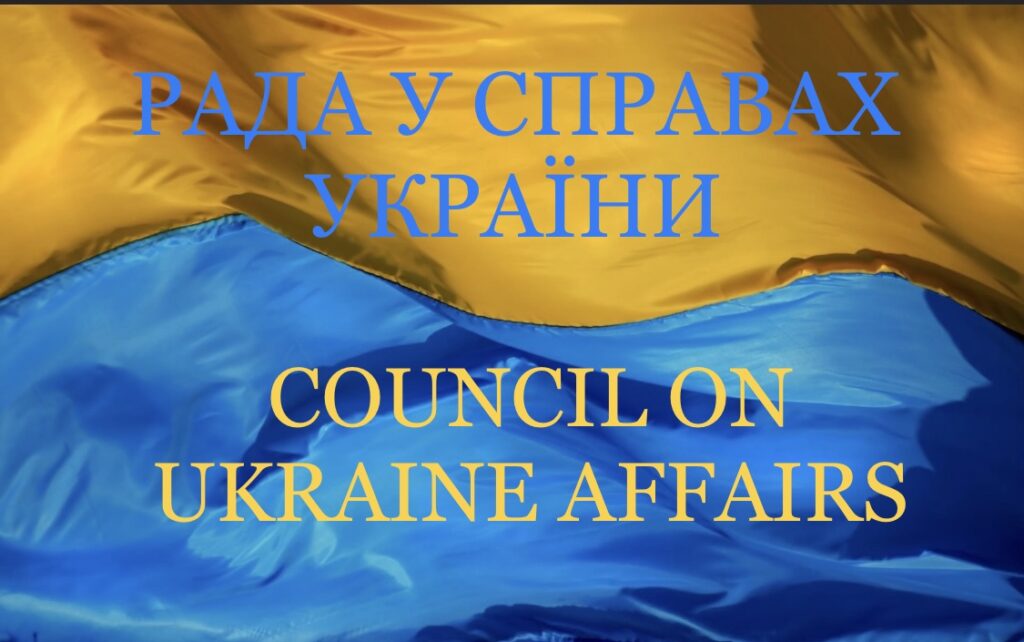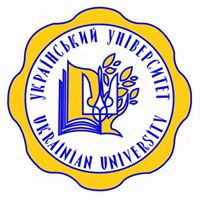
УКР | ENG
РАДА У СПРАВАХ УКРАЇНИ
Сьогодні явилася мені давня уже ідея Ради у Справах України (РУСУ), створення якої я думав ініціювати у перші роки діяльності Міжнародної Асоціації Громадян України (МАГУ), головою якої я був у 1997–2010 роках. Передавши лідерство в МАГУ людям молодшого покоління, я зосередився на втіленні в життя ідеї Українського Університету. Дещо з того, що мріялося реалізувати через РУСУ, відтак почало втілюватися в життя через Український Університетський Клуб (УУК), і це дещо в принципі добре проростає (хоча завжди хочеться, щоб воно проростало краще).
Очевидно, сьогодні призабута ідея Ради у Справах України нагадала про себе не просто так: повномасштабна війна Росії в Україні, яка триває уже понад 500 діб, і героїзм Сил Оборони України, які добилися перелому у цій війні, спонукають нас серйозно замислитися на закріпленні перемоги України післявоєнними успіхами, яких Україна, на жаль, не мала за роки своєї незалежності.
Наш Український Університетський Клуб не може і не повинен (за визначенням) зайнятися тим, що виходить за межі власне інтелектуального мозкового центру. Тобто є речі іншого характеру і інших рівнів, які не вміщуються в «прокрустове ложе» УУК. Рада у Справах України, отже, може і, думаю, повинна охопити все, що будь-якою мірою стосується перспектив розвитку успішної й квітучої України, в усіх внутрішніх і зовнішніх взаємозв‘язках.
Ця Рада має об’днати україноцентричних особистостей — мудреців-мислителів, громадсько-політичних діячів, державників і урядовців, військовиків, діячів культури та мистецтва та ін. Вона не повинна проявлятися публічно із своїми відозвами, заявами, зверненнями, як це роблять клуби (зокрема, і наш УУК) й ініціативи (як, наприклад, Ініціатива Першого Грудня).
Мета і завдання РУСУ бачаться мені в тому, щоб залишитися закритим клубом, що убезпечить тих її членів, які з різних об’єктивних і суб’єктивних причин не можуть або не хочуть проявлятися публічно. Це зовсім не означає, що РУСУ можна розглядати як глибоко законспіроване таємне товариство.
Втім, це також не означає, що буде сенс для РУСУ виходити в публічний інформаційний простір. Достатньо буде того, що інформація з РУСУ буде просочуватися у публічний простір через клуби та ініціативи, з якими пов‘язані члени Ради.
Від самого початку ми мали намір формувати склад РУСУ за запрошеннями. Я мав невеликий список потенційних кандидатів. Поглиблене вивчення бекґраунду зруйнувало той список, і ми призупинили пошуки. Тому тепер виникла думка почати з відкритого повідомлення про РУСУ, щоб почати формування Ради з відбору кандидатів (за спеціальною методикою) з числа тих, хто відгукнеться на це повідомлення.
Україноцентризм, стратеґічна візія і відповідність спеціальним критеріям і визначатимуть, кого із запрошених ми відберемо в Раду. Отже, стартовим принципом у нас буде: «Багато запрошених, та мало вибраних».
Кожен, хто бажає увійти до РУСУ, має представити доповідь (бодай у розгорнутих тезах) про своє бачення перспектив розвитку України на п‘ятдесят років і більше, коротку автобіографію, супровідний лист на електронну пошту Орґанізаційного Комітету Руху Світового Українства: Ukrainainternational@gmail.com.
Проф. Др. Володимир Іваненко,
голова Орґанізаційного Комітету Руху Світового Українства.
9 липня 2023 р.
* * *
COUNCIL ON UKRAINE AFFAIRS
Today, an old idea of the Council on Ukraine Affairs (COUA), the creation of which I thought of initiating in the first years of the Ukrainian Citizens International Association (UCIA), of which I was the chairman in 1997-2010, appeared to me. After handing over the leadership of UCIA to activists of the younger generation, I focused on realizing the idea of the Ukrainian University. Some of what was dreamed of through COUA began to be realized through the Ukrainian University Club (UUC), and this something is, in principle, growing well (although we always want it to grow better).
Obviously, today the forgotten idea of the Council on Ukraine Affairs recalled itself for a reason: the Russia’s full-scale war in Ukraine, which has been going on for more than 500 days, and the heroism of the Defense Forces of Ukraine, which achieved a turning point in this war, prompt us to seriously think about consolidating the victory of Ukraine post-war successes, which Ukraine, unfortunately, did not have during the years of its independence.
Our Ukrainian University Club cannot and should not (by definition) engage in what goes beyond the limits of the actual intellectual brain center. That is, there are things of a different nature and at other levels that do not fit into the “Procrustean bed” of the UUC. The Council on Ukraine Affairs, therefore, can and, I think, should cover everything that in any way concerns the prospects for the development of a successful and prosperous Ukraine, in all internal and external relationships.
This Council should unite Ukrainocentric personalities — sages-thinkers, social and political figures, statesmen and government officials, military experts, cultural and artistic figures, etc. It should not appear publicly with its appeals, statements, as clubs (in particular, our UUC) and initiatives (such as the December the First Initiative) do.
I see the goal and task of COUA as remaining a closed club, which will protect those of its members who, for various objective and subjective reasons, cannot or do not want to show themselves publicly. This does not mean at all that COUA can be considered as a deeply conspiratorial secret society.
However, this also does not mean that it will make sense for COUA to enter the public information space. It will be enough that information from COUA will seep into the public space through clubs and initiatives with which members of the Council are connected.
From the very beginning, we intended to form the composition of COUA by invitation. I had a short list of potential candidates. An in-depth background check destroyed that list, and we put the search on hold. Therefore, now the idea has arisen to start with an open message about COUA, in order to start the formation of the Council for the selection of candidates (according to a special methodology) from among those who will respond to this announcement.
Ukrainocentrism, strategic vision and compliance with special criteria will determine which of the invitees we will select for the Council. So, our starting principle will be: “Many are invited, but few are chosen.”
Everyone who wants to join COUA must submit a report (at least in extended theses) about his/her vision of Ukraine’s development prospects for fifty years or more, a short autobiography, a cover letter to the e-mail of the Ukrainians Worldwide Movement Organizational Committee: Ukrainainternational@gmail.com .
Prof. Dr. Volodymyr Ivanenko,
Ukrainians Worldwide Movement Organizational Committee Chairman.
July 9, 2023
